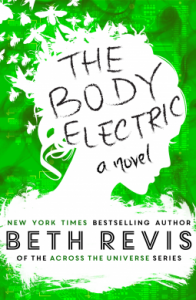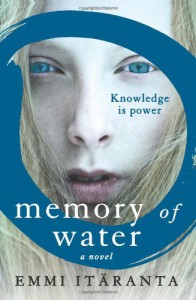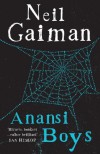William's Book Blog
Mostly book reviews. Very rarely I'll allow William Campbell Powell (author) to write a blog entry on publishing activity, but he's under orders to keep that stuff over on his Facebook page and on http://williamcampbellpowell.com
Currently reading
YA Scavenge Hunt 2015
160 YA books (and their authors) on show, with exclusive bonus content, prizes, and the chance to peruse books you may not have seen before.
The YA Scavenger hunt runs from April 2nd - 5th. http://yascavengerhunt.blogspot.co.uk/
 2
2
Compton Crook Bee-ware ...

I don't know how these things are worked out, but there are seven books on the Compton Crook shortlist. Four of these are by US authors. Three are by European authors - all UK by residence.
I've read - and really enjoyed - Emmi Itäranta's Memory of Water, so I decided to pick up Laline Paull's The Bees as being the other UK entrant.
I'm only a few pages in, but the underlying premise is fascinating - viewing the life of bees from the PoV of a lowest-caste worker, Flora 717. I'm already conscious that there's a subtext of ecological collapse, which is certainly timely. And lots of scope for exploring the pressures of living in a sharply stratified society.
More anon...
 2
2
Compton Crook Award 2015
Expiration Day @WillCamPowell and Memory of Water @emmi_elina both on the shortlist: http://www.bsfs.org/CCA/bsfsccnu2014.htm
Reading silently
I've not stopped reading (i.e. I am not dead), but my last few books have passed unremarked. Mostly audiobooks, as it happens - when I've had time to write at all, it's been ED2 rather than reviews.
Some mini-reviews:
Iain M Banks' Excession. Great narration, as always, from Peter Kenny. ISTR I enjoyed it as a paperback. The audiobook came across far less well - it felt like a contractual obligation album. Either IMB's heart or his mind wasn't in it. The story is pretty much a straight line, compared to the typical Culture novel. The end lacks tension. The Culture warfleet trashes everything vaguely hostile without breaking sweat.
Rudyard Kipling: Kim. With lots of narrators available on Audible, I chose Madhav Sharma and was rewarded by a solid, versatile delivery. Again, less enthralling than I remember, but better than the Errol Flynn film. Far too much repetition in the dialogues with the Tibetan lama, and not a lot of tension as the Great Game is played out in Kim's first adventure. On the other hand, there's wonderful depiction of late 19th century India.
Philip Pullman: The Collectors. A freebie from Audible. A faint tie-in with the Dark Materials multiverse. Otherwise a fairly pedestrian fantasy/horror short.
Neil Gaiman: American Gods. Well-narrated by George Guidall and others (a full cast reading). I did enjoy the ride on this. I didn't see the twist coming. If you like Neil Gaiman, you'll like this, but I really don't see the point of me writing yet another review of AG.
Now back to writing...
Expiration Day 2
Work on the sequel to #ExpirationDay reached the 70,000 word mark yesterday. ED2 has the working title 'A Girl Uploaded', following the style of the original working title of Expiration Day itself, which was 'A Child Alone'.
It's not in a state to buy yet, nor is it even ready to give to beta readers, but as a change from my more usual reviews of the books of other authors, I have permitted myself a rare mention of my own writing, and of a significant milestone reached.
That's it. Thanks for your patience.
 3
3
I sing about it...

There are no new plots, in YA as in other fiction, so the challenge is to mix and match and create new flavours. So Revis gives us the female teen protagonist - Ella - only child of two brilliant parents - one dead and the other dying. A benevolent, post-apocalyptic global dictatorship gone bad. Robots - androids - that may or may not be self-aware. Memory and identity. Freedom fighters, now sadly depleted so that there are just four left - Ella plus Jack, Xavier and Julie.
Julie and Xavier are barely sketches - there for the fights and the chases and to give tension to the group - they don't trust Ella, but bow to Jack's judgement. Jack is better drawn and seems to know Ella very well indeed - but she has no recollection of this.
So Ella is searching to understand who she is and where her memories have gone. And who she can trust, if her memories can be tampered with...
Revis cites P K Dick's work as being heavy influences, and I'd agree. There are clear parallels with Blade Runner and Total Recall. (I'm using the film titles as they're better known than the stories on which they're based.)
Everything was going well until the last ten chapters (there are about 80, but fairly short), and I really thought Revis had lost it. I can sort of see why she did what she did - I'd point to Inception, Source Code and Groundhog Day - but it seemed unnecessarily repetitive. Yes, each scene did play out a little differently, and a little bit more was learned about the nature of the enemy at each pass, but given that the enemy was supposed to be in control, they kept on repeating tactics which were clearly doomed to failure - 'This is your last chance, Mr Bond'. As I say, it got very repetitive and I can see the (stereo-)typical YA reader getting bored and frustrated.
So by the last chapter, when it all gets wrapped-up, I was not feeling sympathetic, and knocking off stars right, left and centre. Ella adopts typical superhero morality when meting out punishment to her defeated enemy, acting as both jury and judge.
I re-read the last couple of chapters, a day later, and decided I'd been a bit harsh. Revis' villain is at least shades-of-grey - a victim of end-justifies-the-means thinking. So one of those stars gets re-instated.
Final thought, then - a mostly-comfortable read with interesting ideas woven into the plot. Lots of nods to good adult SF. Add my usual moan about awful computer security in YA novels - I think I ought to write a blog about that - and I'd say that it is on a par with Hunger Games (with which it shares a first person present tense PoV), without being derivative.
 2
2
Wild Seed winnowed from my collection

DNF - and worse. Returned for refund.
Most of this has already been said in my interim post. I did a quick review on Audible.co.uk - this is the gist:
If this book wasn’t for you, who do you think might enjoy it more?
I think the book's flaws transcend personal taste, though I can see that other reviewers didn't always even perceive the flaws that so irritated me.
What will your next listen be?
Iain M Banks, Excession, narrated by the excellent Peter Kenny. Already bought and waiting to go.
What do you think the narrator could have done better?
Every sentence was read with almost identical cadence - it became truly irritating very quickly. Yes, Dion Graham has a very pleasant vocal timbre, but unless he learns to inject variety of emphasis, he's not doing the book a service.
What reaction did this book spark in you? Anger, sadness, disappointment?
Apathy - The author failed to give me a reason to care for either of the protagonists in the first hour of listening. They were two spoilt immortals engaging in selfish dominance games.
Any additional comments?
Too much infodumping and didactic exposition. The author has forgotten about showing rather than telling.
 4
4
Wild Seed falling on rocky ground

Oh dear. I had high hopes for this one. I'd read Mind of my Mind (the second book in the series) so long ago that I've completely forgotten what it was like or even whether I liked it.
I'm now quite close to the DNF. I can't wholly blame the narrator - Dion Graham - who has a pleasant enough voice, but a tendency to give every sentence exactly the same cadence. It's irritating, but the main annoyance is elsewhere.
The opening chapter is the interaction between two (near-?) immortals encountering each other for the first time. Instantly they start playing van Vogtian dominance games, which I no longer find sparky. It's very mannered (which is why I make the van Vogt connection) but ultimately it's a p*ssing contest between two characters, neither of whom I care about in the slightest. They're too remote, too god-like.
If I don't find a reason to like - even just a little bit - one of these characters very soon (i.e. on my next commute in to work) I'll move on. I'm not going to squander my time listening to a book I have no empathy with, getting myself into a bad mood and writing a stinker of a review.
 2
2
Memory of Water

What a find! Amazon's correlation algorithms triumph and find a book that is a cut above the typical YA dystopia.
It's also going to be a difficult one to review without spoilers - there are several classic books I'd love to compare it with - favourably - and I can't, because that would give the game away.
In an interim post, I referred to the book as a trap closing. I read the book knowing almost from the start that some key characters were not going to make it to the end. The hints are strong, they are there for the reader to pick up, and if you miss those, you'll miss a lot of the tension.
The novel is set in a future time, post ecological failure, and a lot of technology has been lost, and its incomprehensible remnants are to be found in landfill sites. Here the two protagonists find hints that some of the world might not be so bleak, beyond the borders of a thinly-disguised Chinese hydraulic empire. If you're not familiar with the term - see http://en.wikipedia.org/wiki/Hydraulic_empire .
Being set in a true hydraulic empire, there is very little chance of internal rebellion succeeding - the very stuff of life is controlled by the elite - only a sufficient alternative supply can power a rebellion. Water crime is punished by death. The novel shows how these two combine to create intolerable pressure on ordinary people to become complicit in acts that they would ordinarily find abhorrent - it is a strength that the characters in the novel are flawed and anguished, rather than entirely virtuous or entirely evil.
Thus the novel builds its tension not through action, but by balancing the need to escape to discover if the lost lands have recovered, and the need for slow, careful preparation, limited also by the slow pace at which information about the lost lands can be uncovered. Against this backdrop, the military steadily increase their oppression of the populace, driving collaboration and betrayal through the need for water. You can see the trap closing, yet you can also see why the protagonists are forced to remain within the jaws 'just a little longer, then we'll flee'.
The slowness of the novel might be a sticking point for some - it took a while for it to become apparent where the novel was going. The novel is quite short, too. It feels like you're almost at the halfway mark before the journey-pattern becomes defined.
Technology thoughts. Perhaps a bit too pat, the way the CDs and the technology to play them get unearthed. The pods - used for sending messages - it took a while for me to understand the rules for pods (how the were used, what they could and could not do).
I've left the best till last. The language and the poetry thereof really lift this out of the commonplace. You can pick your own favourites, but I love the way writers like Bradbury, Zelazny and Simak can build concoctions of mood and image with their word mastery. Emmi Itäranta could hold her head up in such company.
It's not perfect, but it's dam' good and as my thoughts turn to candidates for the SFWA Norton (the "YA Nebula"), this is one I'll push.
 3
3
memory of water

I stand by my initial impression. The language remains poetic, full of imagery. The story is a trap, slowly closing on the protag. Who would have thought that tea could engender such tension?
 2
2
an interesting voice

One of those chance finds on Amazon. A link followed rather than ignored. In some ways it looks like yet another dystopia + YA female lead. What sets it apart in the first 4 chapters is the quality of writing.
I can't see it suddenly changing gear to high-speed action, either. Wherever the journey leads, it will be slower-paced, mood-driven.
I'm impressed enough already that I've added it to the SFWA Nebula suggested reading list. I hope on several levels I don't come to regret that.
It's raining audiobooks
You may groan at the title, but I stumbled upon this on Cory Doctorow's site. Bottom line, a place to find audiobooks sans DRM, and which serves an international marketplace.
If you don't like the idea of Audible owning the keys to the books you've bought, consider downpour.com
Disclaimer: I have no affiliation to downpour and am receiving no remuneration of any kind from downpour or any affiliate thereof.
 1
1
Midnight review

In the end, there's probably not too much to add to my interim post on Midnight Robber.
Certainly there were no real surprises to the ending. Tan-Tan passes through not-nice back to a character I cared about, and matures. The ending is fitting, and earned.
The book is written in Jamaican patois. Not having read the physical book, I have no idea how well it reads - it might take a lot of getting used to - but in the audiobook, Robin Miles does a fantastic job of rendering it comprehensible.
So many times I was reminded of Neil Gaiman's Anansi Boys (which I really ought to get round to reviewing). There's a lot of shared background, including the Anansi mythology on which both build in their different ways. Both are lightly seasoned with folk tales - Anansi stories/Tan-Tan stories - though I have to say that some of the Tan-Tan stories rambled rather too much to hold my attention - that is responsible for the loss of a star.
Not mentioned in my interim post were the aliens. They were well drawn for the most part, though at times a little black or white in their roles. At the risk of simplifying too much, their role was predominantly that of the Native Americans - certainly it wasn't hard to find analogues for a Tonto figure, though I would not say that the Midnight Robber was always the Lone Ranger.
I remain sceptical that enough YA readers would push through the Tan-Tan aged seven chapters, and the descriptions of abuse definitely rule the book out for middle-grade readers. The book asks its readers to empathise with characters across a wide spectrum of ages, which lifts it above the common herd of YA books, but does make it harder to pigeonhole. That makes it a good choice for adventurous readers - of all ages - not looking clones of the latest fad.
So overall a rather more uneven and less mature work than Sister Mine, but Nalo Hopkinson remains an author whose oeuvre I will continue to explore.
 1
1
Midnight Robber

Having read the excellent Sister Mine by Nalo Hopkinson, and with my audible credits needing using up, I took a punt on this older work by the same author.
I'm a good way through, and I'm not sure how to categorise it. It's certainly science fiction, and I think it would appeal to many YA readers. Gender and race are very important factors, too. Tan-Tan starts off aged seven, though, and some YA readers might not push through the early chapters, to get to the grittier kernel of the story, when Tan-Tan reaches puberty and experiences what I will euphemistically call "dark times" solely to avoid the spoiler. Tan-Tan becomes not a nice person.
In the third (and I imagine final) phase to the book, which I'm just entering, redemption appears - at least, as a possibility.
Oh, and the narrator - Robin Miles - is excellent. I am not an expert in such things, but I am guessing some entirely credible sounding Louisiana / Afro-Caribbean patois.
 1
1
Some justice to the hype

In my interim post on this (audio)book I praised the narrator (Adjoa Andoh), commented on the uneven pace of the two timelines, and the gender ambiguity. This latter actually ended up delivering a perception of an all-female cast, despite the occasional reminders that this was not the case. It might be an interesting exercise to read the book, to see if this still comes through, but, meh.
The timelines did eventually converge and the story assumed the guise of a fairly routine space opera, without the cleverness of writing the distributed viewpoint to sustain it. It was rather less convoluted than a typical Ian M Banks story or an Alastair Reynolds tale, but this is her debut at novel length, so probably to be expected.
There's a super-weapon in there - we're saved from the infodump on how it works (Clarke's 3rd Law applies) until the very end. There's a Jekyll and Hyde opponent, and a rather unsatisfactory showdown, given that we know in a firefight how deadly Breq (the protagonist) is.
There is then a chapter of picking up the pieces, in which the dictator chooses to keep her conscience armed, which Van Vogt-ian act saves the novel from a pedestrian 2.5- or 3-star rating.
 2
2









 1
1